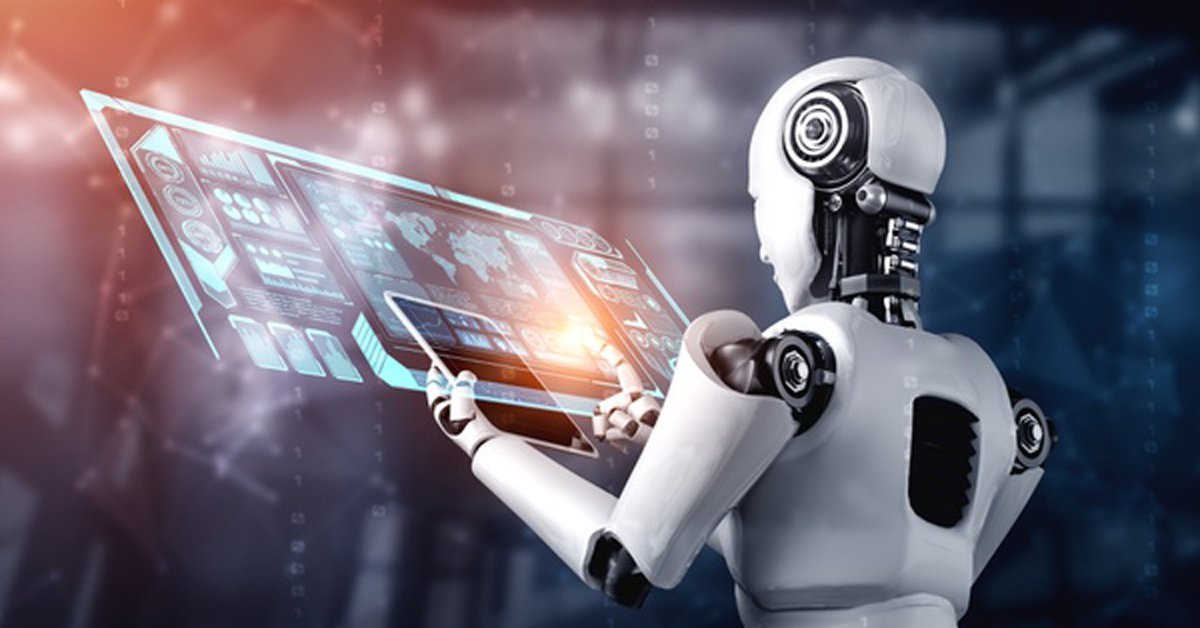Build the Future: A Robotics and Mechatronics Engineering Subject Review

Explore robotics & mechatronics - design intelligent machines, from industrial robots to prosthetics. Learn about key subjects, exciting careers, and why it matters.

Table of Contents
- What are Robotics and Mechatronics Engineering?
- Key Disciplines within the Field
- The Impact of Robotics and Mechatronics
- Careers in Robotics and Mechatronics
- Skills Needed for Success
- Top Universities for Robotics and Mechatronics
- The Future of Robotics and Mechatronics
- FAQ
What are Robotics and Mechatronics Engineering?
Robotics and mechatronics engineering are closely intertwined fields that focus on designing, building, and controlling intelligent machines that can interact with the physical world:
- Robotics centers on the development of robots – machines that can sense their environment, make decisions, and perform actions autonomously or semi-autonomously.
- Mechatronics is a broader multidisciplinary field that combines mechanical engineering, electronics, computer science, and control systems to create integrated smart systems.
Key Disciplines within the Field
Robotics and mechatronics draw upon a wide range of core subjects:
- Mechanical Engineering: Designing the physical structure of robots and mechatronic systems, ensuring strength, mobility, and precision.
- Electronics and Sensors: The 'eyes, ears', and 'nerves' of robots – sensors gather information, while circuits and actuators carry out actions.
- Computer Science and Programming: Developing the software and algorithms that give robots their 'brains' – perception, decision-making, and motion control.
- Artificial Intelligence: Enabling robots to learn from experience, adapt to new situations, and perform increasingly complex tasks.
- Control Systems: Designing the feedback loops that ensure robots and mechatronic devices operate stably and as intended.
The Impact of Robotics and Mechatronics
Robotics and mechatronics are transforming industries and our daily lives:
- Manufacturing: Robots have revolutionized factory floors, increasing speed, precision, and flexibility while handling dangerous tasks.
- Healthcare: From surgical robots to advanced prosthetics and rehabilitation devices, robotics enhances medical care and augments human capabilities.
- Logistics and Warehousing: Automated guided vehicles (AGVs) and robotic arms streamline supply chains, enabling faster and more efficient product delivery.
- Exploration: Robots venture into extreme environments – deep sea, space, hazardous sites – where humans can't go safely.
- Service Robots: Entering homes and workplaces – vacuuming, providing companionship to the elderly, or assisting in hotels and restaurants.
Careers in Robotics and Mechatronics
A degree in robotics or mechatronics engineering opens the door to diverse and rewarding careers:
- Robotics Engineer: Designing, building, and programming robots for various applications across industries.
- Controls Engineer: Developing the control systems that govern robot behavior and ensure precise motion and feedback.
- Machine Learning Engineer (Robotics Focus): Specializing in applying AI techniques to improve robot perception, planning, and adaptability.
- Mechatronics Systems Engineer: Designing integrated electromechanical systems for products ranging from medical devices to drones.
- Field Service Technician: Installing, maintaining, and repairing robotic systems in factories, hospitals, and other deployed settings.
- Research Scientist: Pushing the boundaries of robotics in university labs or tech companies, working on cutting-edge advancements.
Skills Needed for Success
To excel in this field, cultivate these skills:
- Strong foundation in math and physics: Calculus, dynamics, and an understanding of physical forces are crucial.
- Programming Proficiency: Coding in languages like Python and C++, familiarity with robot operating systems (ROS).
- Mechanical and Electronics Aptitude: Hands-on skills in building and troubleshooting mechanical systems and circuits.
- Problem-solving and Creativity: Finding innovative solutions to complex challenges integrating mechanics, software, and sensors.
- Collaboration: Robotics projects are often highly multidisciplinary, requiring effective teamwork.
Top Universities for Robotics and Mechatronics (Rankings fluctuate, always research!)
- Carnegie Mellon University (USA)
- Massachusetts Institute of Technology (MIT) (USA)
- ETH Zurich (Switzerland)
- University of Tokyo (Japan)
- Stanford University (USA)
- University of Pennsylvania (USA)
The Future of Robotics and Mechatronics
Absolutely! Let's delve into the dynamic and rapidly evolving future of robotics and mechatronics:
Key Trends and Innovations
- Collaborative Robots (Cobots): Designed to work alongside humans safely, without cages. This opens up new possibilities in manufacturing and service sectors.
- Swarm Robotics: Inspired by insects, numerous smaller robots working together on tasks. Potential for resilience and tackling complex distributed problems.
- Soft Robotics: Using flexible materials for robots that can safely interact with delicate objects or navigate complex environments, especially useful in healthcare applications.
- Advances in AI: Machine learning is fueling better perception, adaptability, and natural human-robot interaction.
- Cloud Robotics: Robots sharing data and computation through the cloud to learn faster and 'offload' tasks that are too computationally demanding to run onboard.
- Human-Robot Interfaces: From brain-computer interfaces to seamless gesture and voice control, making interaction with robots more intuitive.
Transforming Industries
- Manufacturing: Greater flexibility, custom products, and robots adapting to work with humans will reshape factory floors.
- Healthcare: Surgical robots increasing precision, 'exoskeletons' restoring mobility, and robots providing social support for the elderly.
- Logistics: Ever-more sophisticated warehouse automation, and potentially, long-haul self-driving trucks transforming the transport sector.
- Agriculture: Robots could take on precision weeding, harvesting, and pollination, filling labor gaps and increasing sustainability.
- Construction: Robots aiding in dangerous or repetitive tasks could improve safety and productivity while addressing labor shortages.
Ethical Considerations and Societal Impacts
- Job Displacement: Automation historically creates jobs too, but this transition needs careful management to retrain workers and avoid deepening inequality.
- Algorithmic Bias: AI in robots needs to be as free from bias as possible, especially where decisions affecting humans are made.
- Regulation and Standards: Laws will need to adapt quickly, balancing innovation with safety and liability when robots cause harm.
- Weaponization of Robots: Autonomous lethal weapons pose serious ethical dilemmas, with many scientists calling for international treaties to ban them.
The Role of Robotics and Mechatronics Engineers
Engineers in this field have a crucial role to play in shaping this future:
- Designing for human-centered applications: Where robots truly enhance life, not just replace tasks for efficiency alone.
- Embedding safety and ethics from the start: Not just technical prowess, but a deep understanding of societal consequences.
- Collaborating across disciplines: Teaming up with social scientists, policymakers, and the public to guide positive deployment of robots.
- Communicating clearly: Explaining both the potential and the limits of this technology to manage expectations and foster informed debates.
Absolutely! Here's a set of FAQs exploring the multifaceted future of robotics and mechatronics:
FAQs: Robots in the Workplace
- My job is very repetitive. Should I be worried about a robot taking it over?
- It's a fair concern. Learn about your company's automation plans. Also, improving your skills in areas robots struggle with (creativity, complex problem-solving) can boost your job security.
- Are collaborative robots (cobots) really safe?
- They're designed to be safer than traditional caged industrial robots. However, accidents can still happen. Proper training in their use and well-maintained safety systems are essential.
- Could robots help small businesses too, or is it just for big factories?
- Increasingly yes! More affordable robot options, especially cobots able to do different tasks, are opening up automation to smaller companies.
FAQs: Robots in Our Lives
- Are self-driving cars a near-term reality?
- Full self-driving everywhere is years off. Technology is good in limited areas (highways), but bad weather, complex urban settings are still huge hurdles. Partial self-driving features will become more common first.
- Will we all have robots in our homes soon?
- Roomba-like vacuuming robots are already widespread. Expect those to get smarter, and see growth in robots for specific tasks (elderly care), but not a general-purpose 'Rosie the Robot' anytime soon.
- I'm worried about robots caring for the elderly. It seems impersonal.
- A valid concern. Robots should never fully replace human care. But they can assist with tasks (lifting, medication reminders), freeing carers for meaningful interaction, and help people stay independent longer.
FAQs:
- Should we be worried about a robot apocalypse?
- Not the 'Skynet becomes self-aware' scenario. The real danger is humans using autonomous weapons irresponsibly, or AI-powered surveillance systems eroding privacy with little oversight.
- Will robots make the rich richer, and the rest of us obsolete?
- That's a risk if we don't handle the transitions well. Policies like robot taxes to fund retraining, universal basic income, etc., may be needed alongside the new efficiencies robots bring.
- Should countries try to 'win' at robotics development like an arms race?
- Collaboration on safety and ethics is vital, but some competition likely drives innovation. The key is finding a balance, avoiding situations where recklessly deployed automation has devastating consequences.
FAQs: Should I Study Robotics?
- I love building things, is this the field for me?
- It sounds promising! But it's also about programming and the less glamorous side of making complex systems work reliably.
- It feels like AI is where the real breakthroughs are, not the robot bodies...
- Both matter! AI needs embodiment in the real world to be fully useful, and robot design itself poses complex AI challenges for perception and acting in dynamic environments.


